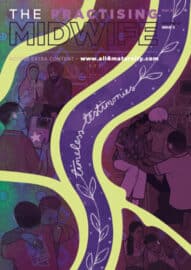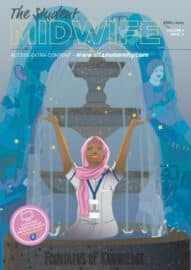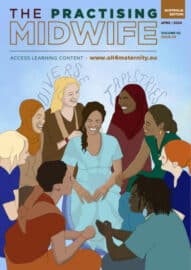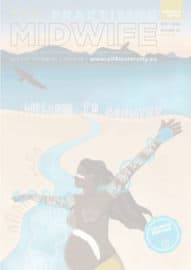RCM launch ‘game changing’ set of recommendations to make midwifery education more inclusive
09 May 2024
The Royal College of Midwives (RCM) has developed a first-of-its-kind toolkit to help neurodivergent midwifery students to navigate undergraduate courses.
Developed alongside midwifery educators and neurodivergent midwifery students, the Neurodivergence Acceptance Toolkit is a set of comprehensive ‘must haves’ for midwifery education. Designed for everyone involved in the planning and delivery of midwifery education, it works by providing a comprehensive checklist and set of best practice of considerations, placing neurodivergent students at the centre of midwifery education. It looks at all areas of midwifery education and offers a set of recommendations to make sure courses are evaluated and adjusted for neurodivergent students.
Commenting on the Toolkit RCM Professional Advisor for Education, Ruby Handley-Stone said:
“Our Neurodivergent Acceptance Toolkit will be a game-changer for midwifery educators and students alike. We’ve worked closely with neurodivergent students and those involved in the planning and teaching of midwifery education, to ensure the toolkit provides practical advice on inclusive education. It will make a huge difference to those students who require adjustments to succeed and make the profession far more inclusive. It will really support midwifery educators to provide the right support and Importantly, it will encourage people from a range of backgrounds and neurominorities into the profession. This is vital as midwives also help mothers and families from a range of backgrounds and neurotypes. They deserve to be cared for by people who understand the challenges they face.”
Across the UK there are growing number of neurodivergent healthcare professionals, with the true figure unknown due fear of discrimination and lack of diagnosis. We know many students with neurodivergent conditions would love to train to become midwives but may be put off because they fear the course doesn’t make allowances for their condition. The Toolkit changes this and will make midwifery education a place of acceptance and an environment where neurodiverse students can thrive as they train to become midwives. From student recruitment to, teaching in the classroom to clinical placements, the Toolkit will ensure every area of midwifery education is evaluated to make sure it is as inclusive as possible.
Emilie Edwards, Senior Lecturer in Midwifery at Middlesex University, was part of the team that helped the RCM develop the toolkit. She also won an RCM award last year for her work to improve midwifery care for pregnant neurodivergent women. She said:
“When working in a diverse community of learners and professionals, it is not enough to build neurodivergence awareness, we need to start actioning concrete changes. The toolkit was built with input from neurodivergent students, midwives and academics from across the UK, and should be a starting point for higher education institutes and midwifery practice areas to examine their programmes and the environment in which they welcome midwifery students. Although this is primarily aimed at the student community, many of the points raised can be extrapolated to qualified midwives and other healthcare professionals.”
The key aims of the toolkit are to:
- Assist midwifery educators to embed a fair process to meet the needs of midwifery students
- Promote the establishment of neurodivergence acceptance champions in HEIs
- Provide guidance on building supportive professional relationships with neurodiverse students
- Guide midwifery educators on implement appropriate adjustments to the midwifery curriculum
- Encourage clinical training placements areas to become neurodivergent friendly
- Support HEIs and clinical settings to conduct regular self-assessment of how neurodiverse friendly their training is.
The full Toolkit can be found here
The Toolkit builds on the work undertaken by a team of neurodivergent midwifery educators, midwives, and students who developed the RCM ‘Neurodiversity in the Workplace’ i-Learn module.
.







